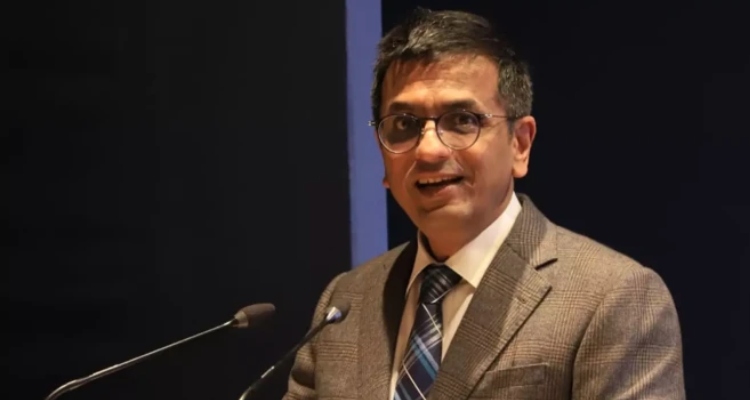
Chief Justice of India D.Y. Chandrachud emphasized the importance of respectful language in courts, particularly regarding women, during the inauguration of the North Goa District Courts Complex near Panaji on Saturday.
He stated that derogatory language has no place in the judicial system, noting that such insensitivity can perpetuate stereotypes and disproportionately impact women and marginalized communities.
CJI Chandrachud highlighted complaints from women judicial officers regarding the use of derogatory terms by some in the administrative establishment. He asserted, “We must actively work to dismantle all barriers to have truly democratic access to justice.”
He urged that the language used in court should reflect inclusivity and respect, stating, “Our words must be precise, respectful, and mindful.”
The Chief Justice expressed concern over the negative effects of insensitive language, especially towards women, reiterating that it must be eliminated from courtrooms.
He called for a reevaluation of legal terminology to ensure it does not reinforce stereotypes based on gender, caste, or socioeconomic status.
In an effort to raise awareness about gender stereotypes in legal discourse, the Supreme Court has prepared a handbook on gender, according to CJI Chandrachud. He reminded judicial officers, especially at the district level, of their responsibility to uplift legal discourse, as litigants often come to court feeling vulnerable and trusting in the system.
The Chief Justice also stressed the need for judgements and orders to be accessible in all regional languages. He announced that Supreme Court orders are being translated into Konkani and urged the speedy translation of Bombay High Court judgments into languages that local communities can understand.
CJI Chandrachud described the concept of a “conscientious court” as essential to the judiciary, emphasizing its awareness of societal realities and the complexities faced by those seeking justice. He discussed the redesign of the statue of the Lady of Justice, highlighting that the law is not blind; it recognizes individual circumstances and societal inequities.
“The Lady of Justice in the Supreme Court carries the Constitution of India, a transformative document that can break the bonds of social hierarchies and inequalities,” he explained.
He noted that the traditional blindfold symbolizing impartiality has been removed, stating, “After all, the law is not blind. It views everyone equally and is aware of social realities.”
CJI Chandrachud concluded by underscoring that true equality in law must acknowledge historical disadvantages and privileges.
“Every individual who walks through the doors of our courts brings their own experiences, struggles, and hopes,” he affirmed, reinforcing the judiciary’s role in fostering a fair and inclusive legal system.




